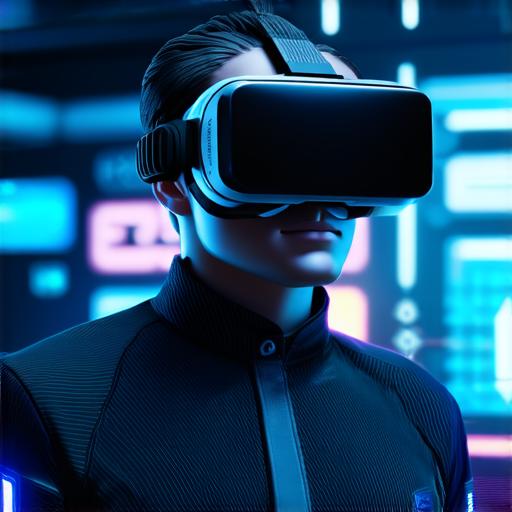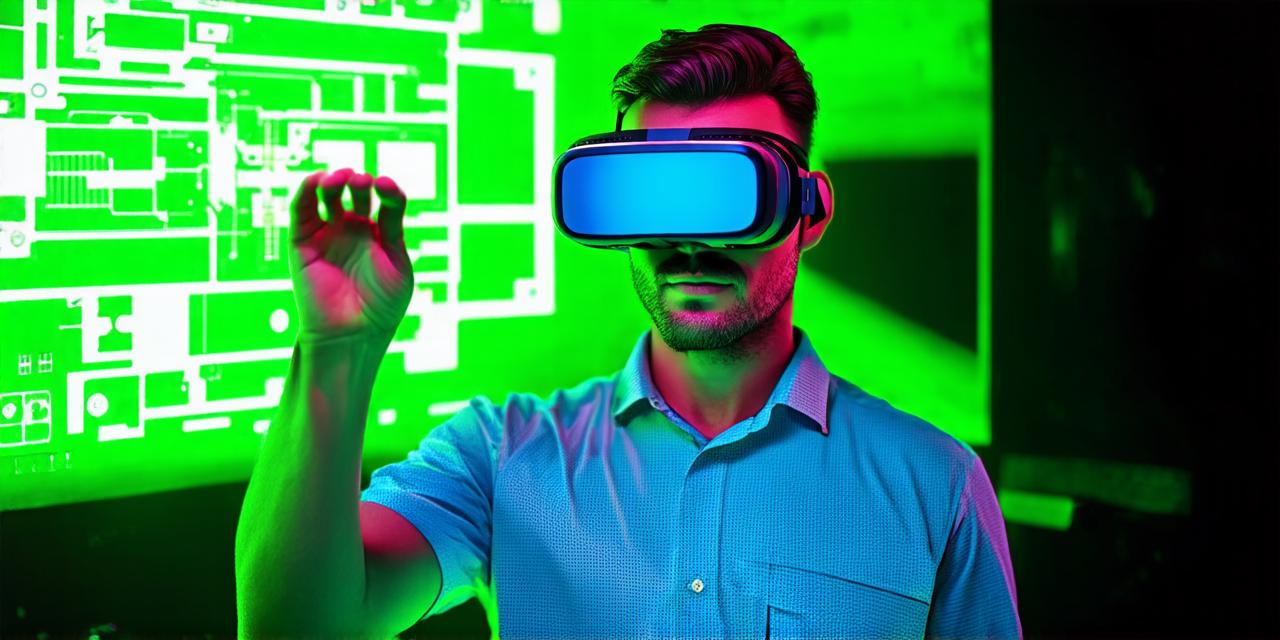In the ever-evolving landscape of technology, virtual reality (VR) game development stands as a beacon of innovation. This guide aims to illuminate the path for aspiring developers, offering insights, case studies, and expert advice.
The Dawn of a New Era

VR gaming is no longer a distant dream but a thriving reality. With the release of Oculus Rift and HTC Vive, the industry has witnessed a surge in creativity and engagement. As John Carmack, CTO of Oculus, puts it, "VR is not just about games; it’s about fundamentally changing how we interact with computers."
The Art of Immersion
The key to successful VR game development lies in creating a sense of immersion. This is achieved by combining 3D graphics, spatial audio, and motion tracking technologies. For instance, the critically acclaimed game, Beat Saber, uses these elements to create an engaging rhythm-action experience that feels like being inside a music video.
The Challenges Ahead
However, VR development is not without its hurdles. The high cost of hardware and the need for powerful computers make it inaccessible to many. Moreover, motion sickness is a common issue due to the disconnect between physical movement and visual feedback. Developers must address these challenges to ensure a seamless user experience.
The Path Forward
To navigate these challenges, developers can leverage cross-platform engines like Unity and Unreal Engine. These tools provide a solid foundation for VR development, offering built-in support for motion tracking, spatial audio, and other essential features.
Moreover, collaboration is key. By working together, developers can pool resources, share knowledge, and collectively overcome the technical hurdles associated with VR game development.
The Future of Virtual Reality Gaming
As we look to the future, the potential for VR gaming is immense. With advancements in technology and a growing interest in immersive experiences, the possibilities are limitless. As Carmack aptly puts it, "We’re at the very beginning stages of what VR can do."
FAQs
1. What tools are best for VR game development?
- Unity and Unreal Engine are popular choices due to their built-in support for VR features.
2. Is motion sickness a common issue in VR gaming?
- Yes, but developers can mitigate this by optimizing the game’s movement mechanics and providing options for adjusting the level of immersion.
3. What are some examples of successful VR games?
- Beat Saber, Superhot VR, and Job Simulator are popular examples of successful VR games.
